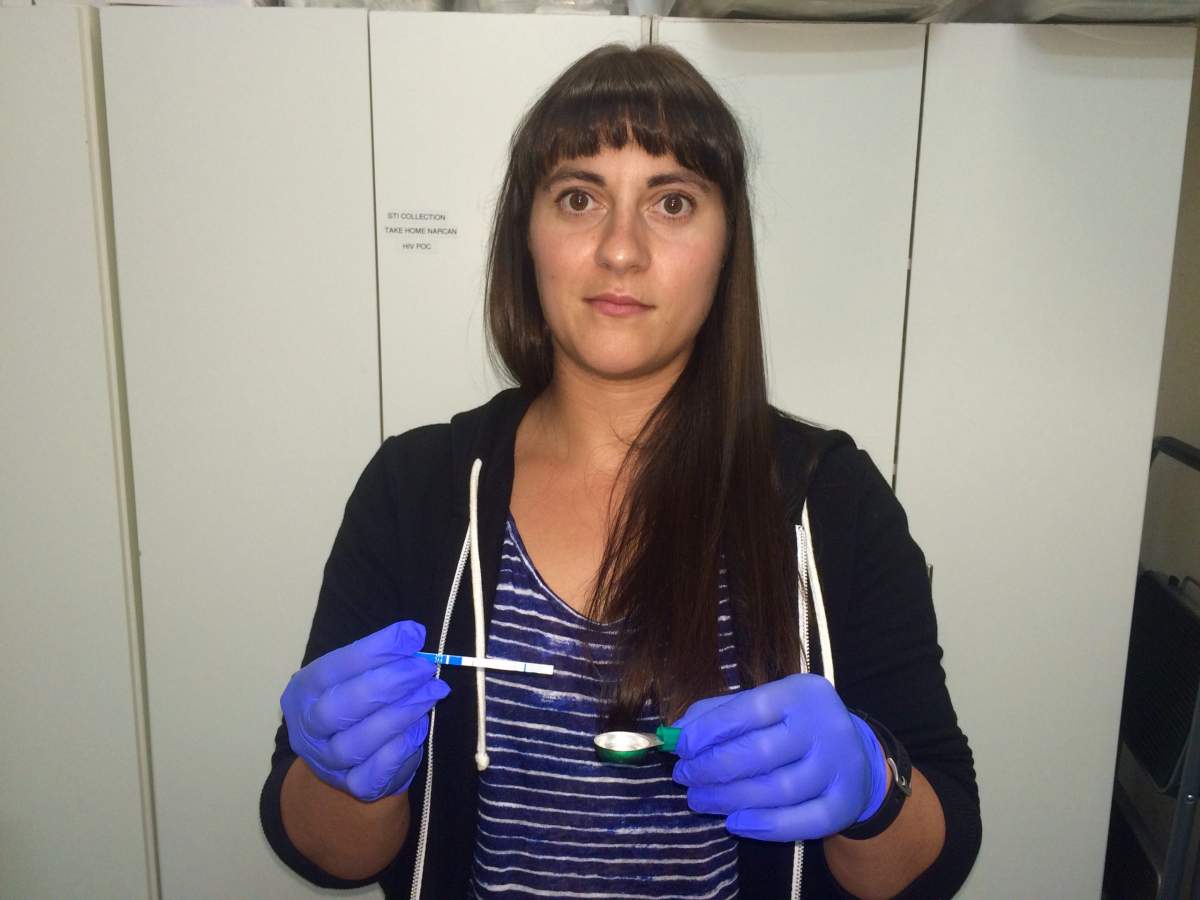The idea of one day testing illegal drugs at Canadian pharmacies in a bid to reduce overdose drug deaths is sparking debate among experts.

On Thursday, the head of an Ontario company that makes fentanyl testing strips suggested that pharmacists could help fight the overdose crisis by testing drugs for addicts.
The fentanyl test strips, first approved as a pilot project at Vancouver’s Insite, are now being distributed to supervised consumption and overdose prevention sites across B.C.
The strips produce a simple “yes” or “no” for the presence of fentanyl, and cannot detect analogues like carfentanil. They are also not accurate 100 per cent of the time.
Mark Haden, a professor with UBC’s school of population and public health, said he sees three key benefits from integrating pharmacists into the harm reduction system.
“The goal would be to save lives, get better data and hold their dealers accountable,” he said.
Haden suggested that the drug-checking role could be funded by the province on a per-test basis, and that health officials would benefit by collecting a wealth of new data about street level drugs.
READ MORE: Vancouver drug users will now be able to test their drugs for fentanyl

Get weekly health news
But if testing were to be done at pharmacies, Haden said, the province would need to draft clear new rules for how the system would work.
“If pharmacists wanted to significantly expand their range of services and provide contact to a health care system, it would work, but that’s really expanding their role considerably.”
WATCH: Fentanyl test strip pilot project confirms large amount of street drugs laced with deadly narcotic

But according to BC Pharmacy Association director of pharmacy practice support Derek Desrosiers, it’s too early to throw support behind the idea.
READ MORE: Fentanyl test strips won’t be widely available any time soon: Minister
“One of the big concerns from pharmacies is the reliability of the strips,” he said.
“I understand there’s potential for the strips to provide either false-positive or false-negative results.”
Unless there’s more evidence the strips are bulletproof and there’s approval from Health Canada, there is too much concern around liability issues, he said.
WATCH: The provincial government unveils testing program aimed at ending overdose crisis

READ MORE: A naloxone kit can reverse an overdose. Here’s how you can get one, and help save a life
A spokesperson with Vancouver Coastal Health said no drug-checking technology is perfect and that there are always limitations.
But the health authority said when the strips are used in the right environment they can help protect drug users.
That was the preliminary conclusion of the pilot study at Insite, which found drug users changed their behaviour when they knew their supply was tainted with fentanyl.
According to the study, people who tested their drugs before taking them and found them to contain fentanyl were ten times more likely to take a smaller dose, and 25 per cent less likely to overdose.
- Head-Smashed-In Buffalo Jump heritage site enjoys boost after shout out on ‘The Pitt’
- What is Nipah virus? What to know about the disease as India faces outbreak
- Pizza Pops contaminated with E. coli tied to 7 hospitalizations, data shows
- Pizza Pops E. coli recall grows as roughly a dozen products now hit














Comments